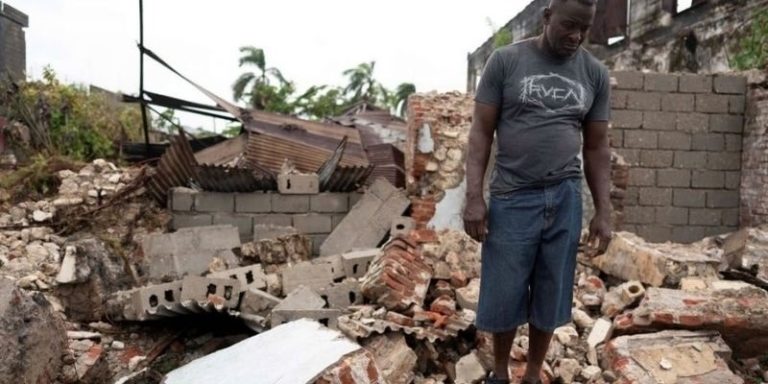Haiti Struggles with Natural and Manmade Disasters
From government corruption and gang crime to earthquakes and storms, Haiti has been hit hard.
By: Keelin Ferris | August 22, 2021 | 436 Words

(Photo by David de la Paz/Xinhua via Getty Images)
The Haitian people have faced chaos for the last two months. An assassinated president and an earthquake caused problems, then a tropical storm made matters worse. Humanitarian aid is needed, but political instability and crime stand in the way.
The Assassination of the President
On July 7, Haitian President Jovenel Moïse was killed in his home. He was a 53-year-old former businessman who had been in office since 2017. The murderers posed as U.S. agents as they bombarded Moïse’s fenced and guarded house. Twenty-eight people were arrested: 26 Columbians and two Haitian Americans. Since then, 16 more people have been arrested in connection to the plot, including 12 Haitian police officers and Moïse’s head of security.
The people’s response to their president’s death was mixed. President Moïse had been unpopular, and he ruled over a poor country struggling to fight COVID-19.
Earthquake and Tropical Storm
A 7.2 magnitude earthquake struck Haiti on August 14. The natural disaster has affected about 1.2 million people – including 540,000 children. Search and rescue efforts have been hindered due to the country’s lack of resources and strong rainfall. A tropical storm is also stopping rescue efforts – Tropical Storm Grace is blocking access to water, food, medical services, and shelter. Luckily, the storm is not being as destructive as predicted.
A Long Record of Turmoil
Western Haiti was facing high levels of crime and violence before the president’s assassination. Criminals are in control of infrastructure like roads, creating another hurdle for rescue and recovery efforts. These problems of corruption and gangs are not new to Haiti. Gangs also control some ports, and they steal shipments of food, supplies, and items sent from Haitian Americans to their family and friends on the island.
Haitians who have emigrated from their country fear returning. Fadia Richardson, a Haitian-born Floridian who organizes donations to send to the island, said criminals would “follow you from the airport, kidnap you, then ask your family in the States to send money … No one I know was going unless there was a funeral or an emergency.”
These issues of corruption, violence, poverty, and crime make it difficult for the country to recover from natural disasters. After a 2010 earthquake, $13 billion was raised for Haiti – but many people doubt the money actually went to help the people. This had made people less willing to donate, since they don’t know where the money goes.
Many Haitians blame government corruption, interference from foreign countries, and poor leadership. Other countries have tried in the past to shape Haitian politics, but all have failed to make any positive, long-lasting change.
















